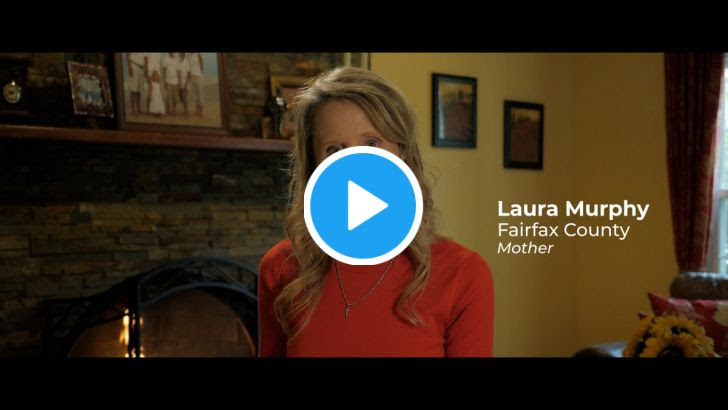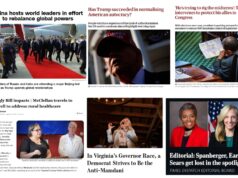From FWIW Virginia:
Welcome to FWIW Virginia, where we analyze digital spending trends on both sides of the aisle in the 2021 Virginia statewide and legislative elections. Each week, we look at how campaigns are investing in digital engagement and the online tactics they use to reach voters across the Commonwealth. Was this email forwarded to you? Click here to subscribe.
Election Day is this Tuesday(!), and all eyes are on Virginia as #VAGov and the battle for the House of Delegates appear to be neck and neck. This is our last edition of FWIW Virginia before Election Day, and whether you’re a staffer, journalist, or political junkie, we hope our newsletter has been a helpful tool for you to keep track of the digital battle for the commonwealth. Thanks for being a member of our little community.
In this final edition, we take a look at the closing arguments being made by the candidates for #VAGov, outside groups, and more! But first…
Top of the Ticket
FWIW, here’s how post-primary spending on Facebook and Google ads stacks up in the Governor’s race:
Earlier this week, former President Barack Obama came to Richmond to stump for McAuliffe and Democrats up and down the ticket. While he was in Virginia, Obama cut a GOTV ad for McAuliffe, urging voters to make their plans to vote. Obama is one of many high-profile surrogates that have visited the Commonwealth in the closing stretch of the campaign to urge Democrats to vote in the off-year election.
Ads featuring President Obama have been used by Democratic campaigns in every election cycle since he left the White House – and strategists on the Left will tell you that Obama content always exceeds expectations, especially for getting out the vote.
McAuliffe’s campaign is also closing with an endorsement ad featuring prominent Black politicians and community leaders from throughout the Commonwealth, touting his work to expand voting rights, reduce the youth prison population, and his plan to invest in public education.

 Glenn Youngkin @GlennYoungkin
Glenn Youngkin @GlennYoungkin
October 25th 2021
1,918 Retweets4,250 Likes
The ad is in line with Youngkin’s strategy of using inflammatory attacks against public schools, attacking schools over “Critical Race Theory” and for the National School Boards Association for requesting protection for school board members from threats and actual instances of violence.
Zooming out, here is how total digital ad spending (national and local targeting) on Facebook and Google stacked up this week in Virginia’s statewide races.
Across the Commonwealth
Here are the top 10 spenders specifically targeting Facebook users in Virginia last week.
As you can see, Democratic and progressive campaigns and outside groups have maintained a strong lead in spending in the final stretch.
On Facebook, we’re seeing abortion-focused spending from progressive and conservative groups seeking to turn out base voters from their respective sides. Planned Parenthood Virginia PAC spent $74,080 on Facebook and an additional $17,500 on Google this week on ads supporting McAuliffe and down-ballot Democrats. On the conservative side, Women Speak Out and Independent Women’s Voice, which each spent $10,423 and $12,853 on Facebook, respectively, are trying to turn out conservative voters with claims that McAuliffe + other statewide Democrats support abortion through birth.
We’re also tracking cumulative digital ad spending across the state, including spending from candidates for statewide offices, competitive or potentially competitive Delegate races (any race under a 15 point margin in 2019), and partisan outside groups with spending specifically targeted at Virginia elections.
On Snapchat, we’ve seen a bunch of spending from progressive organizations, including Clean Virginia, Care in Action, and the Voter Formation Project, all of which are targeting young voters on the platform with persuasion and turnout-focused messaging.
House of Delegates
Here’s how total Facebook + Google ad spending from delegate candidates from each party stacks up:
In the final week, it’s clear that Democratic delegate candidates have prioritized digital advertising more than their Republican counterparts. After a relatively slow summer from both parties, Democratic delegate campaigns picked up their digital ad spending in August, surpassing Republican spending in September and never looking back.
As of October 24th, Democratic delegate campaigns from competitive districts have spent $285,431 on Facebook and Google ads, nearly twice as much as the $148,883 spent by Republicans. Of course, these sums are relatively small compared to what’s being spent by #VAGov campaigns and outside groups, but digital ad spending in lower salience races can be highly effective at building name ID and persuading voters.
And here’s the top 10 delegate campaign spenders on Facebook + Google over the past week:
In HD 85, where Democrat Alex Askew won re-election by just 3.5 points in 2019, Askew’s campaign is up with an attack ad on Karen Greenhalgh featuring her comments from a Facebook Live stream, where she spreads misinformation about the COVID-19 vaccine and claims that “I don’t see a pandemic when I look at the numbers.” With candidates being forced into more online events due to COVID-19, it’s another example of the importance of message discipline in online events where you’re undoubtedly being recorded.
Greenhalgh’s comments are a headache for the House GOP, for whom HD 85 is a must-win if they want to take back the House of Delegates. Making matters worse for Greenhalgh, her campaign’s been outspent on Facebook and Google ads by nearly 2-to-1, with Askew spending $13,550 and Greenhalgh spending $7,429 from the June primary through October 24th.
Thanks again for reading FWIW Virginia! Even though the Virginia elections are wrapping up, the online information wars are ongoing – subscribe to our national newsletter, FWIW, here.














![Monday News: Trump’s Lunacy Pushes China, Russia, India, etc. Together; “Happy Labor Day. Donald Trump and Elon Musk Are Screwing Workers.”; “Where is the [media’s] intense focus on Trump’s failing health?”; ““Trump says he is not a dictator. Isn’t he?”](https://bluevirginia.us/wp-content/uploads/2025/09/montage0901-238x178.jpg)










![Monday News: Trump’s Lunacy Pushes China, Russia, India, etc. Together; “Happy Labor Day. Donald Trump and Elon Musk Are Screwing Workers.”; “Where is the [media’s] intense focus on Trump’s failing health?”; ““Trump says he is not a dictator. Isn’t he?”](https://bluevirginia.us/wp-content/uploads/2025/09/montage0901-100x75.jpg)